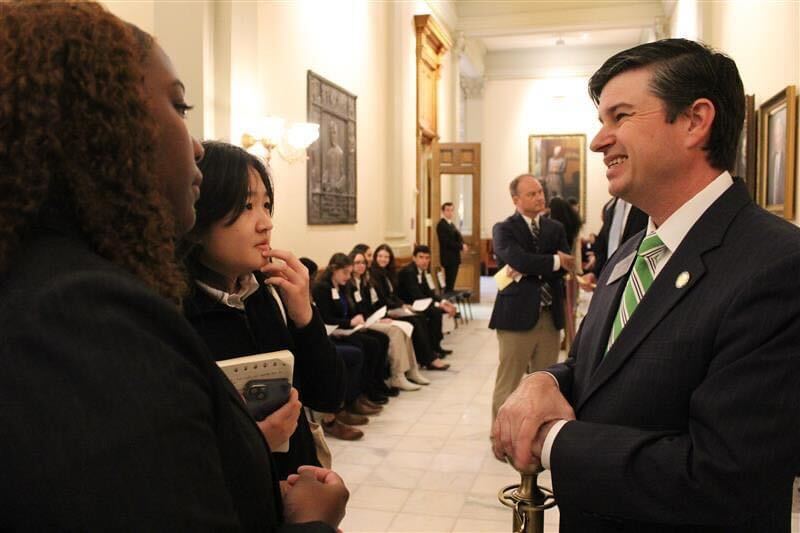
ATLANTA – The state Senate Monday approved a bill that would provide Georgia students residing in low-performing school districts $6,000 to spend on private school tuition.
“This is a money-follows-the-child bill,” said Sen. Greg Dolezal, R-Cumming, who sponsored the “Georgia Promise Scholarship Act.” “[It] levels the playing field for parents who want to get their kids out of the lower 25% of all schools in the state.”
While the original bill would have applied to most students in Georgia, Dolezal added a last-minute amendment limiting the scholarship to just those residing in the attendance zones of the lowest-performing 25% schools in the state.
The bill essentially allows the redistribution of state funding from public to private schools, Dolezal said. Districts would be able to hold on to the local funding portion of each student’s education bill, which would, Dolezal said, increase the amount of funding available to local districts.
The bill would not apply to those who are already studying in private schools or being homeschooled.
Parents who wish to spend the money at private or virtual schools would be able to do so. They would also be able to spend the money on home-schooling and other expenses such as tutoring by a certified educator, curriculum purchase costs, and transportation to and from schools.
“The parent never has access to the money directly – it’s all administered by a third party,” said Dolezal. The $6,000 would not be considered taxable income and the funds would be limited to eligible educational expenses.
The bill passed on a 33-23 party line vote, drawing vehement criticism from Senate Democrats.
“Private school vouchers undermine public schools by diverting desperately needed resources away from the public school system, which serves all students, to fund the education of a few,” said Sen. Freddie Powell Sims, D-Dawson.
If just 2% of Georgia students – around 35,000 – use the scholarships, that would divert around $210 million from the public schools annually, Sims said.
“There is no fiscal note on this bill, something that should be required of any bill of this magnitude,” Sims added, referring to the financial analyses that are typically required for bills that impact state finances.
“The mean cost of annual private school tuition in Georgia is nearly $12,000 – this shatters any illusion that $6,000 would help low-income Georgians access private schools,” added Sims. She also said the bill would leave rural students out in the cold since such students may not have access to private schools.
“Everywhere it’s been tried, it’s worked,” said Cole Muzio, president of the Christian organization Frontline Policy Council. He said private schools offer scholarships that can help families make up the difference between $6,000 and the full tuition cost.
But some Georgia students disagree.
“Voucher bills … threaten to defund our public schools, sending public dollars to private schools which are unaccountable and inaccessible to most of Georgia’s students,” said Hannah Lee, a Coweta County student. “My school deserves equitable funding, and my classmates and I deserve the adequate education our legislators have promised us.”
The bill now moves to the House for consideration.
This story is available through a news partnership with Capitol Beat News Service, a project of the Georgia Press Educational Foundation.